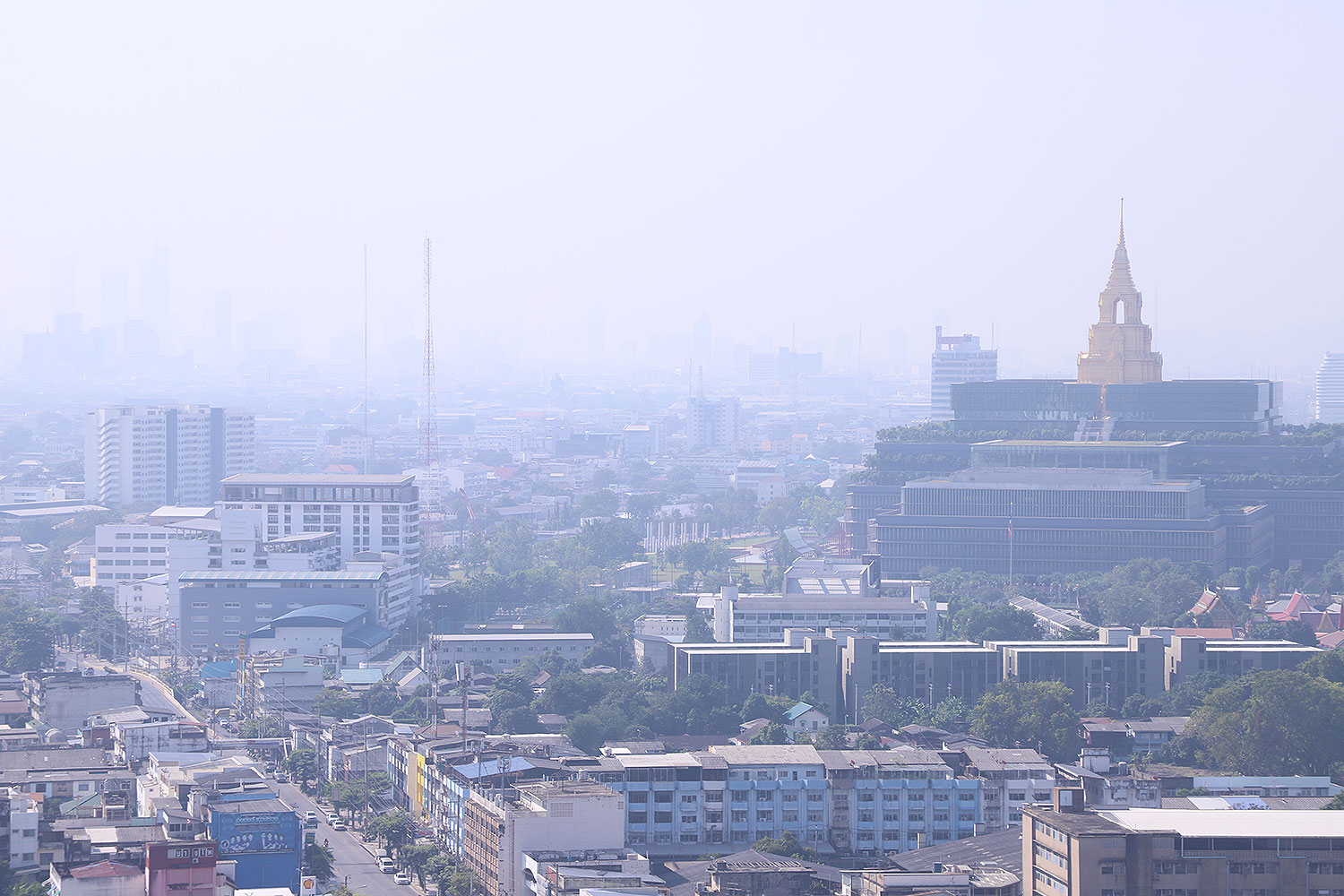
It appears the cool weather is dissipating, but Bangkok residents can count on the health-hazardous fine dust PM2.5 to hang around.
Despite PM2.5 existing throughout the year, the problem worsens during the cooler periods when climate patterns such as low-pressure cells and diminished breezes trap the fine dust in the city.
Yesterday alone, 29 areas in Bangkok reported PM2.5 levels exceeding the so-called safe threshold of 50 microgrammes per cubic metre (µg/m³).
Meanwhile, it's again evident there is no sense of urgency from national and local governments to address PM2.5 which comes from high-sulphur emissions courtesy of diesel-engine vehicles, factories and open burning methods still being practised in the farming sector.
The Thai Meteorology Department (TMD) said PM2.5 levels in Bangkok -- as well as central and upper regions this week -- have been intense since last week, with the problem expected to subside from today.
Despite the seasonal aspects of PM2.5, the government needs to deal with PM2.5 at a structural level by using pro-environmental policies instead of waiting for the problem to blow away.
Perhaps PM Gen Prayut Cha-o-cha needs to be reminded that fighting PM2.5 has been on the national agenda since 2019.
In that year, the PM2.5 was so serious that he ramped up measures to address the problem, such as ordering police and transport ministry officials to test emissions from vehicles' exhaust pipes.
As part of that, the Ministry of Natural Resources and Environment issued goals to reduce fire forests and hotspots caused by open burning in rice, corn and sugar plantations.
The Ministry of Industry provided funds to convince sugar farmers to stop burning sugar cane before harvesting.
Policymakers also demanded the auto industry upgrade vehicle engine standards to Euro 5 by 2021 and Euro 6 by this year, while oil refiners were required to upgrade their refinery processes to produce oil with low sulphur content next year.
Later after being lobbied by industrial sectors, the cabinet, in 2020, postponed the deadline on Euro 5 and Euro 6 for another year.
With economic conditions improving, car sales are now making a rebound, while oil refineries are making a fortune from higher global energy prices.
Yet, policymakers and politicians in the government have become quiet on the issue of forcing industry to improve engine and oil specifications to address air pollution concerns.
It would be no surprise if the government again gives in to the industry lobby and further postpones Euro 5, Euro 6 and cleaner diesel.
Politicians, especially Gen Prayut, are now focused on travelling to the provinces to meet people in constituencies, and there's no mention of the national agenda's fight against PM2.5 anymore.
In Bangkok, popular city governor Chadchart Sittipunt is dragging his feet on his policy to reduce BTS Skytrain fares. The governor has also yet to announce what he is going to do with the BRT -- the financially ailing bus rapid transit at Klong Chong Nonsi. Without good mass transit that helps people leave their cars at home, air pollution in the capital city will never go away.
So, what society is left with is dealing with experts warning people to wear facemasks while national and local governments wait for a change in the weather to lower the city's PM2.5 levels.
